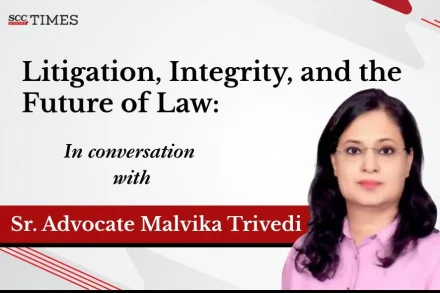
Litigation, Integrity, and the Future of Law: In conversation with Senior Advocate Malvika Trivedi
Interviewed by Shaleen Bareja

Interviewed by Shaleen Bareja
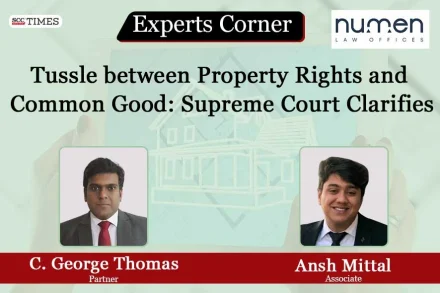
by C. George Thomas* and Ansh Mittal**
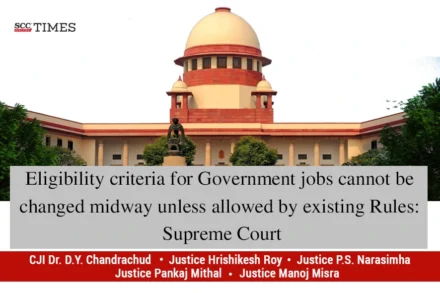
“Recruiting bodies subject to the extant rules may devise an appropriate procedure for bringing the recruitment process to its logical end, provided the procedure is transparent non-discriminatory, non-arbitrary, and has a rational nexus with the object sought to be achieved”
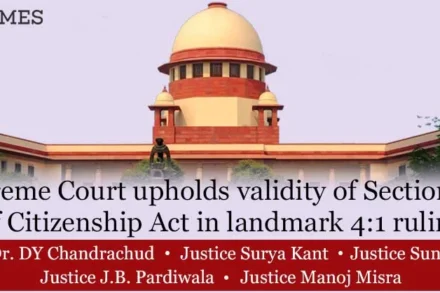
Section 6A of the Citizenship Act, 1955, permits foreign migrants of Indian origin who entered Assam between 01-01-1966, and 25-03-1971, to apply for Indian citizenship. This provision was introduced in 1985 as part of the Assam Accord, an agreement between the Government of India and leaders of the Assam movement, which aimed to address the concerns over illegal immigration from Bangladesh
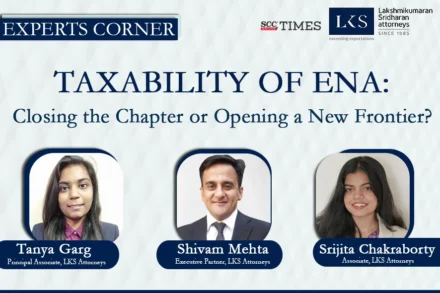
by Shivam Mehta†, Tanya Garg †† and Srijita Chakraborty†††
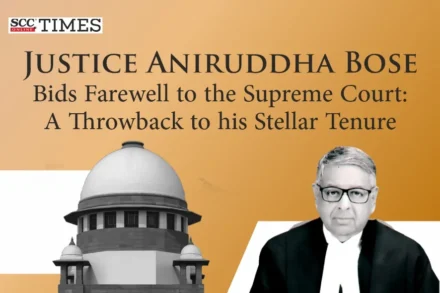
Justice Aniruddha Bose, who retires on 10-04-2024 after a tenure of 5 years, had served the High Courts of Calcutta and Jharkhand as a Judge and Chief Justice respectively prior to being elevated to the Supreme Court in 2019.
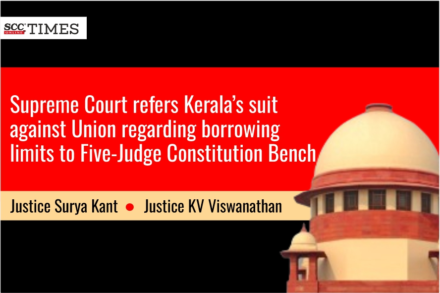
“If we were to issue interim mandatory injunction in such like cases, it might set a bad precedent in law that would enable the States to flout fiscal policies and still successfully claim additional borrowings.”
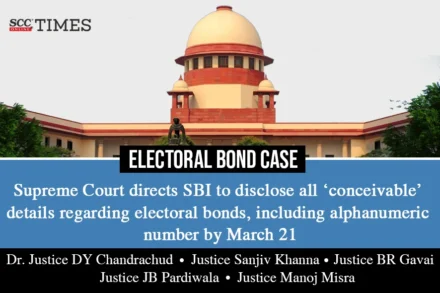
On 15-03-2024, the Court had stated that SBI to disclose unique alphanumeric code printed on each electoral bond, which helps match donors with political parties. Accordingly, it issued notice to the SBI and directed the matter to be posted for 18-03-2024.
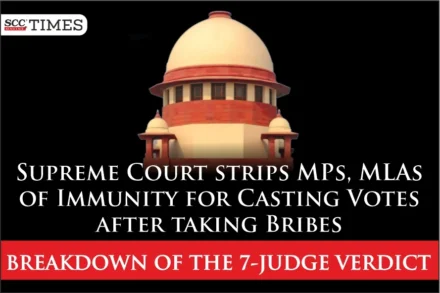
In P.V. Narasimha Rao v. State (CBI/SPE), (1998) 4 SCC 626, the 5-Jugdge Bench held that the MPs and MLAs enjoyed immunity if they cast vote in the House after taking bribe for it.
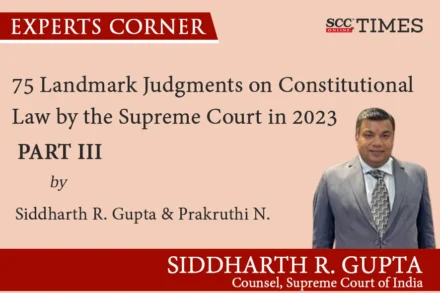
by Siddharth R. Gupta* and Prakruthi N.**
Cite as: 2024 SCC OnLine Blog Exp 20
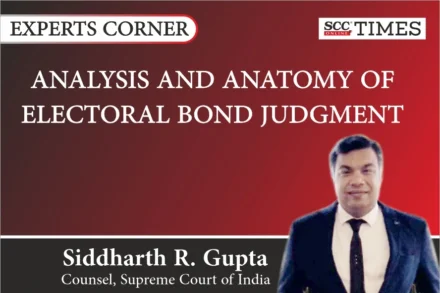
by Siddharth R. Gupta*
Cite as: 2024 SCC OnLine Blog Exp 17
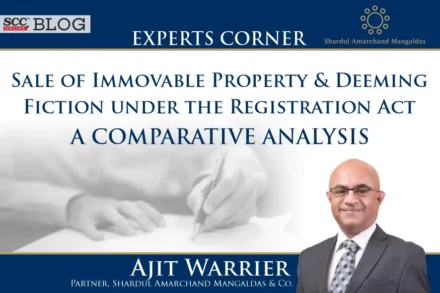
by Ajit Warrier*
Cite as: 2024 SCC OnLine Blog Exp 18
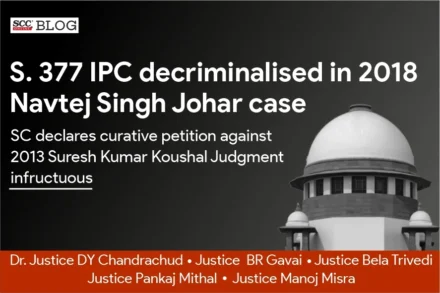
A curative petition is a petition which requests the court to review its own decision even after a review petition is dismissed. It is considered as the last and final option available for redressal of grievances.
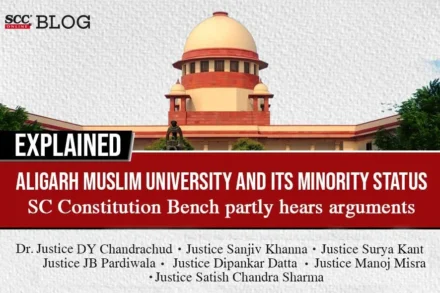
“The 7-Judge Constitution Bench began hearing against Allahabad High Court’s decision on 09-01-2024, whereby, it was held that AMU cannot have an exclusive reservation because it is not a minority institution, within the meaning of Article 30 of the Constitution of India.”
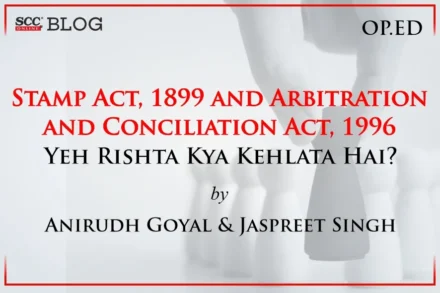
by Anirudh Goyal† and Jaspreet Singh††
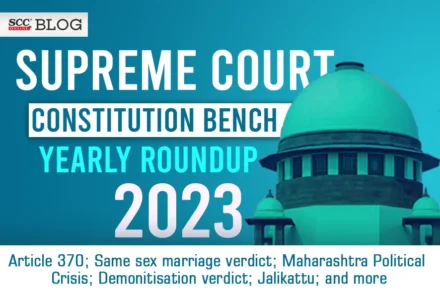
This year was very busy for the Supreme Court’s Constitution Bench as it dealt with the maximum number of cases and decided major matters like Article 370; Same sex marriage; Maharashtra political crisis; and more
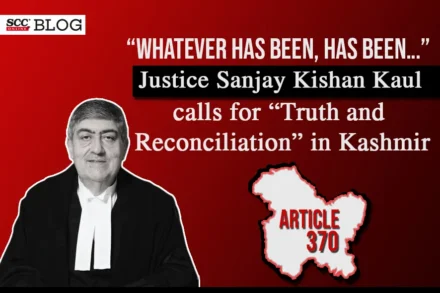
Calling for a collective understanding of the human rights violations perpetrated both by State and non-State actors, against the people of Kashmir, Justice Sanjay Kishan Kaul recommended the setting up of a Truth and Reconciliation Commission.
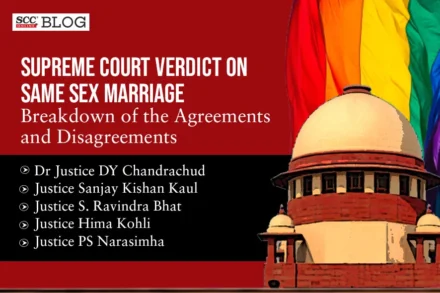
In a verbose verdict running into 366 pages, the 5-judge Constitution Bench of Dr DY Chandrachud, CJI and Sanjay Kishan Kaul, S. Ravindra Bhat, Hima Kohli, PS Narasimha, JJ wrote 4 opinions on the Same Sex Marriage matter where they agreed on some points and disagreed on others.
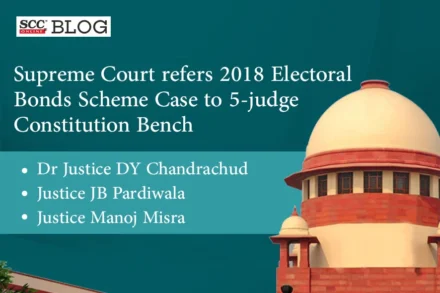
The Finance Act, 2017 introduced a system by which electoral bonds could be issued by any scheduled bank for the purpose of electoral funding.
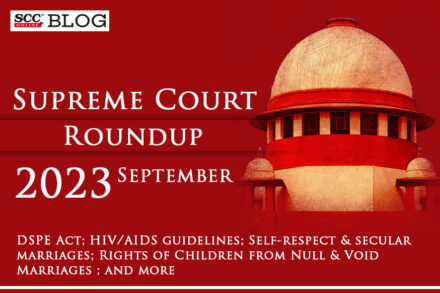
This roundup revisits the analyses of Supreme Court’s judgments/orders on DSPE Act; HIV/AIDS guidelines; Self-respect and secular marriages; Andaman & Nicobar Islands Gang rape case; and more. It also covers Cases Reported in SCC Weekly in the month of September; Explainers on important law points; and Never reported Judgments